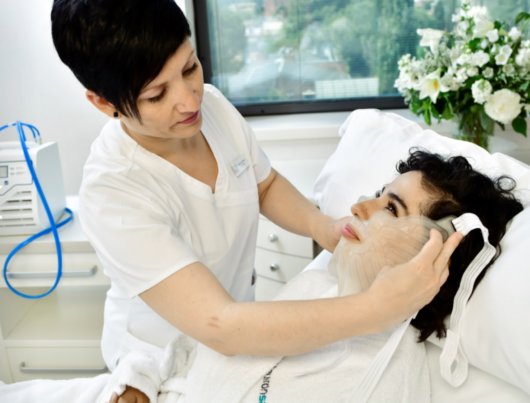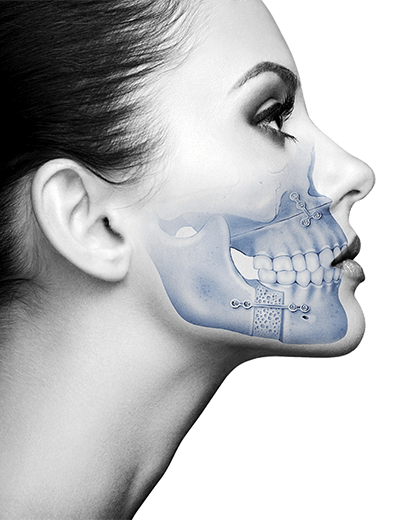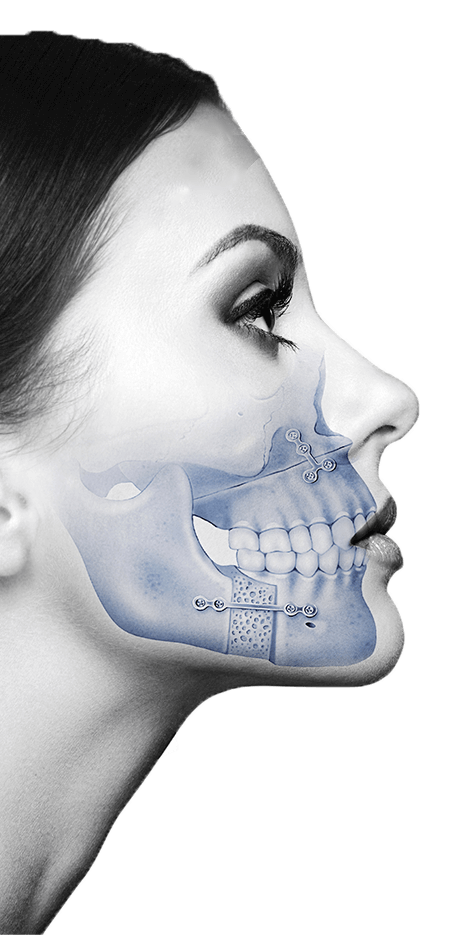Jaw surgery is usually not painful. There's a widespread misconception that, during jaw surgery, the maxillofacial surgeon will “break your jaw”. This misconception makes the whole procedure seem utterly invasive and is supported by thousands of photos of bruised and swollen people after undergoing orthognathic surgery, so it may be difficult to believe that very few patients report actual pain.
What really happens in surgery is that your surgeon will reposition the maxilla or jaw by means of small cuts in the bone, or osteotomies. Your nerves and

muscles will resent the changes made during surgery, but you won’t actually experience any pain because you will be under anaesthetics, and by the time feeling returns to your face, most of the pain will be already gone.
Regardless of this, we should keep in mind that pain is not just a physical sensation but an emotional one as well. Different patients have different pain threshold and there is no way of determining who has a high threshold and who has a low threshold. Also, it depends on the type of surgery you have (monomaxillary, bimaxillary, with or without complementary procedures, etc.)
 After many years of experience and feedback from our patients, we have noticed that the majority of them report pain to be less than expected, they rather express experiencing different levels of discomfort, with some people getting anxious because in the hours and days after the procedure, their nasal and sinus passages swell, hindering the air entrance. Also, there is a bit of pain when they yawn, sneeze and cough, or if they get jaw spasms; but surprisingly, most people report an enormous craving for solid food as their main discomfort! So for the most part, you shouldn’t experience much pain at all.
After many years of experience and feedback from our patients, we have noticed that the majority of them report pain to be less than expected, they rather express experiencing different levels of discomfort, with some people getting anxious because in the hours and days after the procedure, their nasal and sinus passages swell, hindering the air entrance. Also, there is a bit of pain when they yawn, sneeze and cough, or if they get jaw spasms; but surprisingly, most people report an enormous craving for solid food as their main discomfort! So for the most part, you shouldn’t experience much pain at all.
It is also important when choosing the surgeon, to look for specialists who perform minimally invasive procedures. At the Maxillofacial Institute we are pioneers in minimally invasive orthognathic surgery techniques, specially developed with the aim of shortening surgery times, gain greater precision and reduce postoperative trauma, in addition to applying specific postoperative care, such as a cold mask, and lymphatic massages.
Bear in mind that all patients receive medication to reduce swelling and relieve pain, which in most cases is easily controlled with medication and rest. In general, patients can return to normal life within two to three weeks after their orthognathic surgery.








